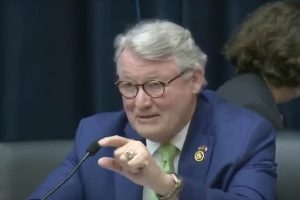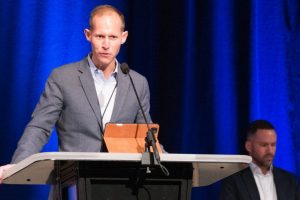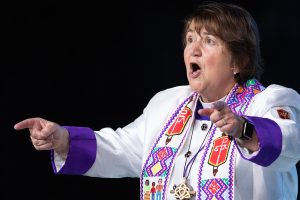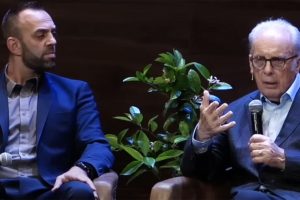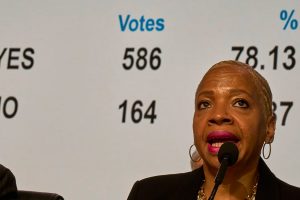In the aftermath of the epochal power shift in Washington, the pundits are already attempting to interpret the deeper meaning of what happened. Inevitably, one's reading of the election tea leaves is filtered through one's own ideological perspective. Thus conservatives, moderates and liberals are all acclaiming that the election really means that their own viewpoint either prevailed (moderates and liberals) or needs to be revived after a period of drift (conservatives).
I want to offer a centrist Christian take on these events.
Exit polls clearly showed that weariness with the war on Iraq, and unhappiness over its conduct, played a dominant role in this election. Conservative Christians in the last several years have often offered uncritical support for the war, primarily, I think, because of a reflexive patriotism, a desire to support the troops, and a tendency to want to back a Republican president.
I have tried to argue for the last three years that the war did not meet just-war criteria and that Christian patriotism does not mean uncritical support for war, for Republicans (or Democrats), or for this (or any) president. I have also tried to say that supporting our troops does not mean uncritical support of a policy that keeps rotating them back to Iraq indefinitely in the service of a strategy that is not working and costing 90 American lives a month. It looks like the elections may finally force a rethinking of the entire enterprise, which is a very good thing.
Many of the most visible social conservative candidates were beaten badly on Nov. 7. This includes Rick Santorum in Pennsylvania, Ken Blackwell in Ohio, Ernest Istook in Oklahoma, Katherine Harris in Florida, and ardent anti-immigrationists J.D. Hayworth and Randy Graf in Arizona.
It should be clear to those who have hitched their wagon to a purely “Christian Right” agenda that it will not prevail in American politics. Happily, this does not mean that pro-life candidates cannot win, nor does it mean that gay marriage will advance. But it does mean that candidates who are mainly known for an angry anti-everything stance will not do well.
Surely there are some lessons to be learned here by Christians overall, who are sometimes known for just such an angry anti-everything stance, as if that is what defines the Christian gospel. We should be known primarily by what we are for, not what we are against.
The success of minimum-wage ballot initiatives in six states, as well as the election of numerous candidates who support raising the minimum wage, is a reminder that our relatively steady economic growth is not spreading its benefits evenly across the population. A Christian concern with economic justice and a decent, dignified life for all should lead to a commitment to precisely those measures that enable working people to make a decent living.
Another thing we should be for — deeply, desperately for — is a revamping of a health-care system that leaves over 45 million people in our country uninsured. I hope and pray that this issue will be addressed successfully in the next two years.
Corruption was also an issue in this election, as it should be. One of the most outrageous misuses of Christian political influence over the last few years has been when Christian leaders have defended favored politicians in the face of strong evidence of their corruption. It is a cleansing moment in American politics, as people like Mark Foley, Tom DeLay, Don Sherwood, Ralph Reed, Conrad Burns, Bob Ney and others are moved out of power as evidence of their misdeeds or connections to scandal became too great to ignore.
Now if Democrats succumb to the same temptations and do the same things, they too will be swept out of office in the same way, as they have been in the past. As President Bush said this week, Americans want honest and ethical politicians to lead them. This is an issue of good government, not a partisan issue. Christians should be all about honesty and integrity in American politics.
Conservative columnist David Brooks wisely wrote this week that this election marks a move to the political middle, with voters demanding competence and accountability—both of which are also Christian values. Candidates whose records, demeanors and campaigns promised such competence and accountability did extremely well on Tuesday. Those who were primarily marked by rigid ideology did not do well.
The mess in Iraq, the chaos after Katrina, the growth of runaway government spending, the shrill partisanship — none of this represents America at its best. Americans were looking for statesmen, problem-solvers, competent grownups in this year's election. Let's hope that the people they voted for will offer such leadership over the next few years.
-30-
— David P. Gushee is University Fellow and Graves Professor of Moral Philosophy at Union University in Jackson, Tenn. www.davidgushee.com


